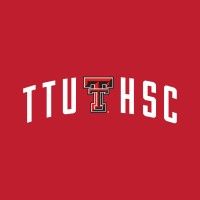预约演示
更新于:2025-08-27
Benzyl isothiocyanate
更新于:2025-08-27
概要
基本信息
非在研机构- |
权益机构- |
最高研发阶段临床前 |
首次获批日期- |
最高研发阶段(中国)- |
特殊审评- |
结构/序列
分子式C8H7NS |
InChIKeyMDKCFLQDBWCQCV-UHFFFAOYSA-N |
CAS号622-78-6 |
关联
100 项与 Benzyl isothiocyanate 相关的临床结果
登录后查看更多信息
100 项与 Benzyl isothiocyanate 相关的转化医学
登录后查看更多信息
100 项与 Benzyl isothiocyanate 相关的专利(医药)
登录后查看更多信息
2,330
项与 Benzyl isothiocyanate 相关的文献(医药)2025-12-31·CyTA-Journal of Food
Aroma profiles and potential odour-active compounds in Thai fish sauce produced from anchovies caught from three different coastal regions in Thailand
作者: Keeratipibul, Suwimon ; Wongngam, Wasana ; Pengjun, Thanaporn ; Deesom, Nattapon ; Kunanopparat, Thiranan ; Phewpan, Apiniharn ; Siripanwattana, Chanchana
Thai fish sauces produced from anchovies caught from three different coastal regions of Thailand [the western (WT), eastern (ET), and southern (ST)] had similar overall sensory aroma profiles with strong fishy and meaty odours followed by sweet, cheesy, sour and musty odours.The 3 fish sauces differed in the intensity levels of these 6 attributes.Fish sauce odourants were extracted by solvent extraction followed by solvent-assisted flavor evaporation (SAFE) and analyzed by gas chromatog.-olfactometry (GC-O).Odor-active compounds of three fish sauces were analyzed using aroma extract dilution anal. (AEDA) with flavor dilution (FD) factor ≥1024.There were 18 potential odor-active compounds which exhibited FD factor ≥128 in at least one of the studied fish sauces.Differences in the FD factors of these odourants between each fish sauce were found.These results suggested that anchovies caught from different regions contributed to the different sensory profiles of the fish sauces.
2025-12-01·DRUG DELIVERY
Enhanced in vitro and in vivo antifungal efficacy against Candida albicans of nanostructured lipid carrier loaded with benzyl isothiocyanate extracted from Carica papaya L. seeds.
Article
作者: Yu, Mingqi ; Zheng, Zelin ; Gao, Jie ; Ma, Xinyi ; Yu, Xiaodan ; Li, Zijie ; Wu, Jinyan ; He, Xiaowen ; Ma, Yinzheng ; Wang, Yan
Candida albicans is the most prominent conditional fungal pathogen, which can cause systemic candidiasis when an individual becomes immunocompromised. The widespread and long-term use of azoles like fluconazole (FLC) has led to a significant increase in drug resistance, posing substantial challenges to clinical treatment. In our previous study, benzyl isothiocyanate (BITC) was extracted from Carica papaya L. seed, and it exhibited a notable inhibitory effect against C. albicans. However, the application of BITC is restricted by its instability, poor water solubility, volatility, and easy degradation. This study aimed to prepare BITC-loaded nanostructured lipid carrier (BITC-NLC) to address these limitations of BITC and enhance antifungal efficacy in vitro and in vivo against C. albicans. The results of physicochemical properties showed that BITC-NLC had small particle size, good physical stability, and high encapsulation efficiency. In vitro, the antifungal effect of BITC-NLC was better than BITC against both sensitive and resistant C. albicans and better than FLC against resistant C. albicans. Moreover, in the in vivo experiment using systemic candidiasis mice model induced by resistant C. albicans, BITC-NLC was more remarkable than BITC and FLC in the increase of the survival rate and the splenic index, the reduction of the fungal burden, and the alleviation of the pathological damage. These findings may be attributed to the enhanced stability and sustained release of BITC. This study highlights the potential of BITC-NLC as a novel and effective formulation for the clinical treatment of drug-resistant C. albicans infections, thereby expanding the application scope of papaya.
2025-10-01·JOURNAL OF NUTRITIONAL BIOCHEMISTRY
Benzyl isothiocyanate ameliorates hepatic insulin resistance in mice with high-fat diet-induced nonalcoholic fatty liver disease
Article
作者: Lii, Chong-Kuei ; Yang, Ya-Chen ; Huang, Chin-Shiu ; Tsai, Wei-Ting ; Lee, Jyun-Lin ; Chen, Haw-Wen ; Lo, Chia-Wen
The global prevalence of overweight and obesity has risen sharply over the past few decades as a result of excess calorie intake and sedentary lifestyles. Obesity increases the risk for various metabolic disorders, such as hyperlipidemia, fatty liver disease, and diabetes mellitus. Isothiocyanates, which are abundant in cruciferous vegetables, have been shown to exhibit anticancer, anti-inflammatory, and antioxidant properties. However, the efficacy of benzyl isothiocyanate (BITC) in preventing the adverse effects of obesity, such as hepatic steatosis and insulin resistance, remains uncertain. To address this knowledge gap, we assessed whether BITC protects against hepatic insulin resistance by using primary mouse hepatocytes and AML12 cells treated with palmitic acid (PA) and mice fed a high-fat diet supplemented with cholesterol and cholic acid (HFCCD). We found that the impairments in insulin sensitivity caused by PA, such as decreases in the phosphorylation of insulin receptor substrate (IRS) 1 (Tyr608), Akt, glycogen synthase kinase (GSK) 3β, and FOXO1 and increases in the expression of glucose-6-phosphatase (G6Pase) and phosphoenolpyruvate carboxykinase 1 (PEPCK) mRNA in hepatocytes, were mitigated by pretreatment with BITC. BITC also attenuated PA-induced hepatic lipid accumulation and reactive oxygen species production. In vivo, BITC significantly reduced blood glucose levels and the HOMA-IR and inhibited hepatic lipid accumulation, IRS1 phosphorylation at Ser307, and G6Pase and PEPCK expression compared with that in mice fed the HFCCD alone. These results show that BITC ameliorates the lipotoxicity associated with insulin resistance by activating the IR/IRS/Akt/FOXO1 and GSK3β pathways, which leads to decreased gluconeogenesis and increased glycogen synthesis.
1
项与 Benzyl isothiocyanate 相关的新闻(医药)2025-07-12
点击“蓝字”关注我们编者按:为了解决传统药物研发周期长、成本高且成功率低的问题,人工智能技术正被广泛应用于药物筛选和设计。首都医科大学附属北京同仁医院/北京市糖尿病研究所杨金奎教授团队将深度学习与实验验证相结合,成功发现了具有潜力的Cathepsin K抑制剂Quercetin和GLA,为骨质疏松治疗提供了新思路。研究成果近日发表在Expert Opinion on Drug Discovery。论文的共同第一作者为李奇助理研究员和杨金奎教授的博士研究生韩雪纯,杨金奎教授为本文的通讯作者。骨质疏松治疗的挑战与AI赋能药物筛选的突破骨质疏松症是一种常见且日益严重的公共卫生问题,表现为骨密度降低、骨微结构受损,显著增加脆性骨折风险。尽管现有治疗药物(如双膦酸盐、选择性雌激素受体调节剂等)可降低骨折发生率,但其副作用较大、患者依从性差,限制了临床应用范围。Cathepsin K(CTSK)是破骨细胞中参与骨基质降解的关键蛋白,被认为是治疗骨质疏松的重要靶点。早期新药研发的CTSK抑制剂有默沙东公司的Odanacatib,其III期临床试验花了12年超过10亿美金,关键试验招募了超过16,000名患者。数据表明Odanacatib对于增加骨矿物质密度和降低骨折的风险确实具有疗效。但Odanacatib会增加卒中的风险,研发被迫中止。因此,寻找更安全的新型CTSK抑制剂成为当前研究的关键方向。但是传统的药物研发正面临着周期长、成本高且成功率低的问题。近年来,人工智能技术,特别是深度学习(Deep Learning, DL),在药物研发中显示出巨大潜力。通过构建多层神经网络模拟人脑信息处理机制,深度学习能够从大量复杂数据中自动学习特征,实现高效、精准的药物活性预测。相比传统机器学习方法,深度学习在处理高维度化学结构数据方面具备更强的表达能力与泛化能力,为新药筛选提供了创新工具。杨金奎教授研究团队采用将深度学习与实验验证相结合的策略以寻找更安全的新型CTSK抑制剂。团队使用基于图神经网络的分子属性预测工具 Chemprop,对化学分子的结构信息进行“阅读”和分析,预测其抑制CTSK的潜力。最终,成功筛选出两个具有显著抑制活性的候选分子,为骨质疏松的精准治疗提供了新方向。从模型训练到分子对接:AI赋能药物发现第一步为了预测化合物抑制CTSK活性的潜力,研究团队利用Chemprop平台构建了一个基于图神经网络的二分类深度学习模型。该模型以PubChem数据库中约6万个化合物为训练数据集(其中约2000个为已知活性抑制剂,其余为无活性对照),通过将化合物的SMILES结构转化为分子图形式输入模型。研究人员运用贝叶斯优化方法调节模型超参数,从而提高预测精度。训练完成后,模型可为任意输入分子生成一个0~1之间的评分值,表示其抑制CTSK的可能性。测试结果显示,该模型具有出色的预测性能,ROC-AUC值达0.93。在此基础上,研究者利用训练完成的模型对天然产物化合物库进行虚拟筛选,从中筛选出100个预测评分最高、最可能具有CTSK抑制活性的候选化合物。随后,结合分子对接技术,对这批候选分子与CTSK蛋白(PDB ID: 2F7D)进行结合模式分析。研究者使用AutoDockTools对蛋白和化合物进行结构预处理,并通过AutoDock Vina完成分子对接,定位CTSK活性位点并筛选出结合能最低的最优构象。最后,借助PyMOL对对接结果进行可视化分析,识别化合物与靶点关键氨基酸之间的相互作用关系。最后,对候选分子的实验活性结果显示,Quercetin(槲皮素)、GLA(γ-亚麻酸)和BITC(异硫氰酸苄酯)抑制活性最强,均在100 μM浓度下表现出超过90%的抑制率;而Punicalagin、Sulforaphane和Arachidonic acid也具有超过80%的抑制活性。进一步地,研究者对Quercetin、GLA和BITC进行了更深入的结合模式和稳定性分析。分子对接显示,BITC和Quercetin能在CTSK活性位点形成多个稳定氢键,结合能分别为–5.9和–5.4 kcal/mol,结合能力较强;而GLA结合能较弱(–1.2 kcal/mol),且未稳定结合活性位点,符合其非竞争性抑制特征。随后,利用GROMACS进行10纳秒分子动力学模拟,结果显示BITC和Quercetin与CTSK复合物在生理条件下结构稳定,保持较低的结构偏移(RMSD)和氨基酸柔性(RMSF<0.45 nm),结合自由能分别为–16.01和–11.36 kcal/mol,表明BITC结合更为稳定,可能是更有效的抑制剂。总之,研究者通过虚拟筛选与分子对接相结合的方法不仅帮助筛选出3个高活性的候选分子——Quercetin、GLA和BITC,还通过分子动力学模拟验证了其结合稳定性,为后续体外实验提供了坚实的理论依据。从酶学到细胞功能:体外实验全景分析为验证候选化合物对Cathepsin K(CTSK)的抑制活性及其在细胞层面的作用,研究团队开展了多项体外实验。首先,在酶学层面,研究者使用荧光底物 Z-Gly-Pro-Arg-AMC 评估不同浓度候选化合物对CTSK酶活性的抑制效果,并通过荧光酶标仪实时监测底物水解过程,绘制剂量-反应曲线,最终计算出各分子的半数抑制浓度(IC50),从而初步确认其酶学活性。随后,在结构层面,研究者借助 AutoDock Vina 对GLA、Quercetin 和 BITC 与CTSK蛋白进行分子对接,结合PyMOL可视化分析,揭示其在活性位点的结合模式。进一步通过GROMACS进行10纳秒分子动力学模拟,分析分子结合后的结构稳定性及结合自由能,结果显示BITC和Quercetin结合更稳定,可能为更有效的CTSK抑制剂。最后,在细胞功能层面,研究团队采用RAW264.7小鼠巨噬细胞系,在RANKL诱导下分化为破骨细胞,通过TRAP染色观察多核破骨细胞形成情况,并采用Acridine Orange 染色检测细胞酸化水平,进一步评估破骨细胞活性。同时,利用 CCK-8 检测化合物对细胞活力的影响,排除潜在毒性干扰。结果显示,Quercetin 和 GLA 在有效浓度下可显著抑制破骨细胞生成,且未表现出明显细胞毒性,而BITC虽具有较强抑制效果,但在高浓度下显示出一定的细胞毒性。因此,Quercetin 和GLA被认为是更安全且具有潜力的CTSK抑制剂。研究总结与未来展望本研究成功运用深度学习与实验验证相结合的方法,构建了高效准确的CTSK抑制剂预测模型,并筛选出多种具有显著抑制活性的候选分子。通过分子对接和分子动力学模拟,深入解析了关键分子与CTSK的结合机制及稳定性,揭示了不同抑制剂的作用模式。细胞实验进一步证实了槲皮素和γ-亚麻酸对破骨细胞形成的有效抑制作用,为骨质疏松治疗提供了新的潜在药物候选。本研究不仅为CTSK靶点药物开发提供了重要的理论和实验基础,也展示了人工智能技术在加速新药发现中的广阔应用前景。未来,基于这些发现的优化与深入研究,有望推动更安全、高效的骨质疏松治疗药物的开发,为临床治疗提供新的解决方案。专家简介杨金奎 教授首都医科大学附属北京同仁医院教授、一级主任医师,博士研究生导师。北京市糖尿病研究所首任所长,首都医科大学附属北京同仁医院内分泌学科带头人,北京市糖尿病防治办公室主任,北京市糖尿病防治研究重点实验室主任。首都医学科学创新中心临床联合研究员。2019年入选“北京学者”,2020年入选“北京市战略科学家”。享受国务院特殊津贴。2021-2024年连续入选斯坦福全球前2%顶尖科学家。北京市第十三、十四、十五届人大代表。民盟中央委员。重点开展代谢性疾病新药靶点发现与新药研发;糖尿病发病机理与胰岛功能基础研究;糖尿病微血管并发症临床研究。获国家新药证书3项;以第一完成人获中华医学科技奖、教育部科技奖等省部级科技奖6项。十三五国家重点研发计划首席科学家。主持国家自然科学基金重点项目、国际合作、专项及面上项目 8 项。在STTT (2篇)(IF:52.7) 、Diabetes Care (6篇) (IF:16.6)、Nature Commm (IF:15.7)、Cell Discovery (IF:12.5) 、Med(IF:11.8)等期刊发表SCI论文120余篇,他引超过12000次。获授权中国发明专利5项,美国发明专利1项。参考文献:Li, Q., Han, X.-C., Zhou, S.-R., Lu, Y., Wang, Y.-J., & Yang, J.-K. (2025). Discovery of novel cathepsin K inhibitors for osteoporosis treatment using a deep learning-based strategy. Expert Opinion on Drug Discovery. https://doi-org.libproxy1.nus.edu.sg/10.1080/17460441.2025.2527686声明:本文仅供医疗卫生专业人士了解最新医药资讯参考使用,不代表本平台观点。该等信息不能以任何方式取代专业的医疗指导,也不应被视为诊疗建议,如果该信息被用于资讯以外的目的,本站及作者不承担相关责任。最新《国际糖尿病》读者专属微信交流群建好了,快快加入吧!扫描左边《国际糖尿病》小助手二维码(微信号:guojitnb),回复“国际糖尿病读者”,ta会尽快拉您入群滴!(来源:《国际糖尿病》编辑部)版权声明版权属《国际糖尿病》所有。欢迎个人转发分享。其他任何媒体、网站未经授权,禁止转载。
临床3期
100 项与 Benzyl isothiocyanate 相关的药物交易
登录后查看更多信息
研发状态
10 条进展最快的记录, 后查看更多信息
登录
| 适应症 | 最高研发状态 | 国家/地区 | 公司 | 日期 |
|---|---|---|---|---|
| 胰岛素抵抗 | 临床前 | 中国台湾 | 2025-10-01 | |
| 胰岛素抵抗 | 临床前 | 中国台湾 | 2025-10-01 | |
| 胰腺癌 | 临床前 | 美国 | 2010-04-15 | |
| 宫颈癌 | 临床前 | 美国 | 2007-05-01 | |
| 宫颈癌 | 临床前 | 美国 | 2007-05-01 | |
| 宫颈癌 | 临床前 | 美国 | 2007-05-01 |
登录后查看更多信息
临床结果
临床结果
适应症
分期
评价
查看全部结果
| 研究 | 分期 | 人群特征 | 评价人数 | 分组 | 结果 | 评价 | 发布日期 |
|---|
No Data | |||||||
登录后查看更多信息
转化医学
使用我们的转化医学数据加速您的研究。
登录
或

药物交易
使用我们的药物交易数据加速您的研究。
登录
或

核心专利
使用我们的核心专利数据促进您的研究。
登录
或

临床分析
紧跟全球注册中心的最新临床试验。
登录
或

批准
利用最新的监管批准信息加速您的研究。
登录
或

特殊审评
只需点击几下即可了解关键药物信息。
登录
或

生物医药百科问答
全新生物医药AI Agent 覆盖科研全链路,让突破性发现快人一步
立即开始免费试用!
智慧芽新药情报库是智慧芽专为生命科学人士构建的基于AI的创新药情报平台,助您全方位提升您的研发与决策效率。
立即开始数据试用!
智慧芽新药库数据也通过智慧芽数据服务平台,以API或者数据包形式对外开放,助您更加充分利用智慧芽新药情报信息。
生物序列数据库
生物药研发创新
免费使用
化学结构数据库
小分子化药研发创新
免费使用





